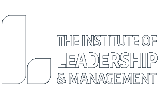As this week is ‘Mental Health Awareness’ week, we thought we would share our expertise on how continuing professional development can help combat mental health
issues that arise with things that happen on an everyday basis. Do you need a digital detox?
‘Everyday stresses and how to combat them’ is a 4-part blog series delving into common aspects that affect a lot of people, especially the younger generation,
in their everyday lives.
- Do you need a digital detox?
- How to take control of your wellbeing.
- Do you really know yourself?
- Letting CPD make you more confident.
These are topics we’re going to be addressing, with links to how professional and personal development can help alleviate some of the stresses that are associated with them. The first topic we’re going to leap into is the digital world.
Digital FOMO
Technology is such an integral part of everybody’s lives. So many people have some sort of device that they use on a daily basis such as a phone, tablet computer or otherwise. 2017 was a milestone year for the mobile industry: the number of people connected to mobile services surpassed 5 billion globally and as of May 2018, GSMA intelligence found with their Global Data real time tracker, that there are 8.5bn mobile connections in the world and that number is only growing.
With technology, however, comes a newer form of stress. The fear of missing out, otherwise known by the acronym FOMO, is a growing feeling in many people especially those who are 20 and younger. BMC Public Health found in 2011 that overuse of phones in 20-24 year olds, is associated with stress, sleep disturbance and symptoms of depression in both men and women. This irrational fear of being left out causes stress and a negative mindset due to overthinking the social situation entirely. Technology changes the way we communicate, the way we think and our privacy as it’s so easily accessible and everything posted, shared or liked can never fully be deleted.
How can CPD help?
Continuing professional development, allows you to become more aware of your needs, understand the development you require both professionally and personally and helps you understand your self and plan for the gaps and your future aspirations. The more informed you are with how your body handles stress and certain situations the easier it is to progress and move forward. Technology is on the rise and is increasingly one of the most integral parts of peoples lives; therefore it needs to be embraced as it is shaping the way we manage our personal development and the impact this has on our personal reputation management. Remember that your online identity, is part of your personal reputation, so do consider your personal and professional online identity and is it as you want it to be represented.
To help you with your Digital Detox, here are 5 tips that you can implement to allow you to take a step back, reflect and progress:
-
Take a day off
Leave your phone at home or out of reach and give yourself, and your mind, a break. Or be even more brave, by stopping the constant buzz and turn all the gadgets off and go about your everyday life.
-
Sleep it off
Stop using your gadgets minutes before you sleep. Staring at that screen keeps your mind alert and active when you should be relaxing and reflecting. Get into the habit of not looking at the screen 1 hour before you sleep. Put it in the other room if you have to.
-
Be in the moment
So often we go to meet friends and family and we just sit on our phones mumbling words to each other. Put the phone away and talk. Mindfulness, is about being present in the moment and take more of an interest in things that are happening in real life not behind a phone screen.
-
Use filters
Email programs allow you to filter the emails you receive. You should only allow the most important ones to come through so when you do check your inbox, you’re not overwhelmed with emails that aren’t very significant right at that moment. Also go into the settings on your social media accounts to set up the amount of notifications and other features.
-
Talk
Let the people closest to you know that your taking a step back from social media and technology so it doesn’t come as a surprise. Having support and people there to talk to helps you share the burden of negative feelings that technology gives you. A good time to do this is at holiday times and then continue it to the weekends.
What Leap Like A Salmon offers you
The Leap Like A Salmon CPD Hub engages, encourages and motivates you to capture and manage your continuing professional development. You have free access to our ‘Essential Membership’ it only takes seconds to complete, please click the link to get started:
https://www.leaplikeasalmon.com/membership-options/essential/
Having everything in one place in a clear and organised way helps alleviate stress. Our brains don’t retain everything, so let the hub do it for you. Early research has found that working memory is a more active version of short term memory and has been found to store up to 7 items of information. (Live Science, 2008). Remembering every piece of professional development and progression that you have undertaken is an impossible task due to the amount of relevant information learnt in classes, workshops and everyday life. Understand the way you think and how you can manage the negative aspects of this digital world and having done your digital detox, continue to control social media and technology, so that you can enjoy and benefit from it.
Watch out for the second instalment of this series ‘How to take control of your wellbeing’ where we will be addressing how capturing and managing your professional development can help improve your mental wellbeing.
Thanks for reading, let us know what you think by leaving a comment, or if you have a question, please do contact us.
Many thanks
Lauren Evans






